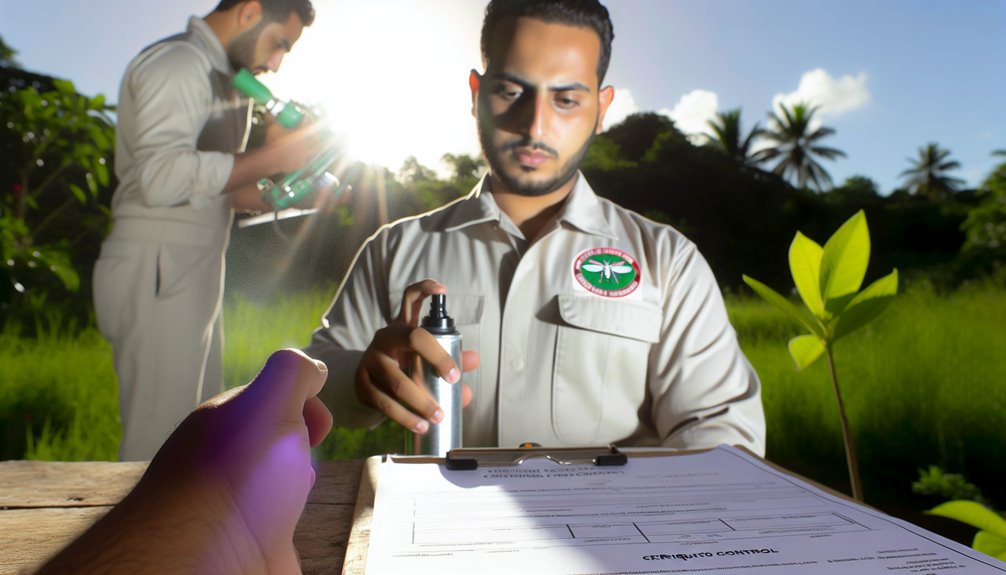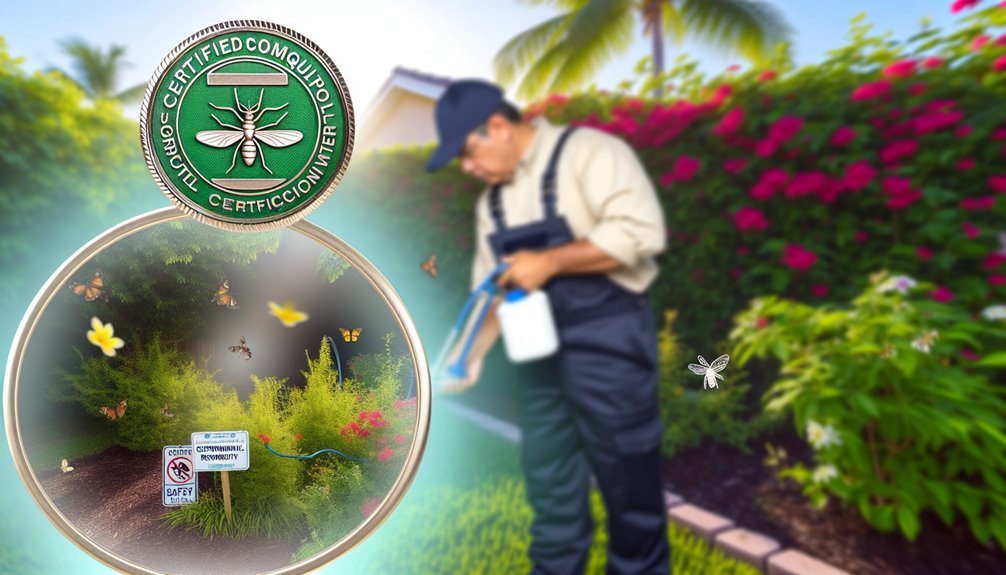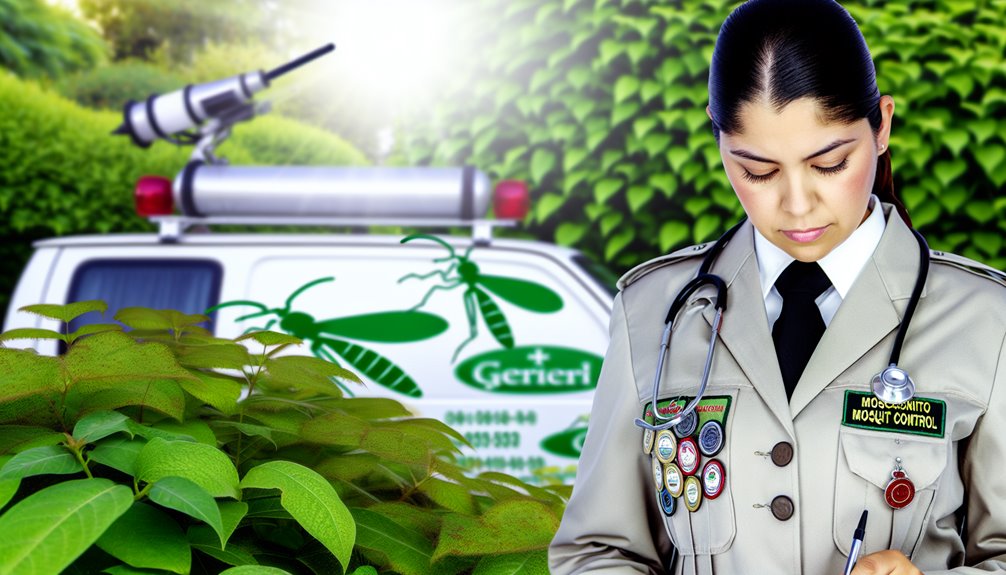Like seat belts in a car, certifications and licenses aren’t optional—they’re your baseline protection. When you hire a mosquito control provider, you want proof they follow state pesticide laws, use EPA-registered products correctly, and document treatments to limit liability. Proper credentials signal trained technicians, calibrated equipment, and habitat-based strategies that reduce resistance and off-target risks. Before you sign a contract, it pays to know which credentials matter—and how to verify them.
What Certifications and Licenses Really Mean for You

Although logos and badges can blur together, certifications and licenses signal specific, enforceable standards that affect your safety, results, and legal exposure. You’re trusting people to protect families, volunteers, and neighbors, so insist on proof. Certification importance lies in verified training on mosquito biology, resistance management, and label-directed use. Licensing requirements mean the company operates under state pesticide laws, carries accountable supervision, and maintains records subject to audits. These controls reduce drift, runoff, and non‑target harm, while improving efficacy and outbreak response. You’ll also gain insurance alignment, incident reporting pathways, and recourse if work falls short. That’s servant-minded risk management.
Key Credentials to Look For in a Mosquito Control Company
Start with verifiable credentials that tie directly to safety, legality, and results. Ask for state pesticide applicator licenses for each technician, not just the company. Confirm category-specific endorsements for public health/vector control. Verify ongoing CEUs that align with current industry standards. Look for third-party audited quality systems (e.g., ISO 9001) and written IPM training. Require proof of insurance with adequate limits and an active business license. Check membership in recognized professional associations with ethics codes. Evaluate supervisor qualifications—entomology degrees or Board Certified Entomologist. Documented calibration and product stewardship training are essential. Prioritize transparent credential types and traceable expiration and verification paths.
Safety, Compliance, and Environmental Stewardship

Because mosquito control involves regulated pesticides and sensitive habitats, you should vet providers for rigorous safety systems, documented compliance, and measurable environmental safeguards. Ask how they implement integrated pest management to minimize chemical use, prioritize source reduction, and protect pollinators. Verify worker training aligns with state and federal regulatory standards, including label adherence, PPE, drift prevention, and spill response. Expect site-specific risk assessments, waterway buffers, and calibrated equipment logs. Require transparent product lists with EPA registrations and resistance-management plans. Insist on wildlife-safe larvicides where appropriate and responsible adulticide timing. Choose teams who report incidents promptly and continuously improve through audits.
Verifying a Provider’s Standing and Track Record
How do you separate credible operators from smooth talkers? Start by confirming active licenses with your state pesticide regulator and checking any enforcement history. Review insurance certificates and ask for proof of worker training aligned with industry standards. Evaluate provider reputation through third‑party reviews, Better Business Bureau records, and referrals from public health partners or HOAs. Request service logs, product labels, and EPA registration numbers to verify compliant practices. Ask about complaint resolution times and reservice policies. Compare years in operation, technician retention, and participation in professional associations. Document everything. You’re safeguarding people, property, and waterways—due diligence reduces operational and community risk.
How Proper Credentials Translate to Better Results and Value

When a provider holds current licenses, verified training, and documented quality systems, you don’t just get paperwork—you get measurably better control and fewer downstream risks. You benefit from label-accurate dosing, resistance management, and calibrated equipment that reduce callbacks and protect non-targets. Certified applicators follow EPA and state rules, cutting liability and safeguarding community trust.
Credentials impact operational discipline: pre-treatment inspections, data logging, and post-application results assessment. You’ll see defined action thresholds, targeted larviciding, and validated product rotation. That rigor supports transparent reporting, predictable budgets, and fewer service disruptions. In short, proper credentials convert into safer neighborhoods, stronger stewardship, and durable mosquito suppression.
Conclusion
As the owner of Mosquito Eliminators of South MS, I truly believe that choosing a licensed and certified mosquito control provider is one of the best decisions you can make for your home and community. It not only ensures safety and effectiveness but also gives you peace of mind knowing you’re in good hands. I invite you to visit our website at mosquitoeliminatorsms.com or give us a call at (601) 336-2277. Let’s work together to create a mosquito-free environment for you and your loved ones. I look forward to hearing from you!

